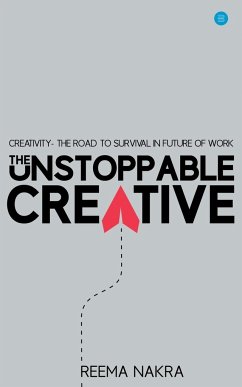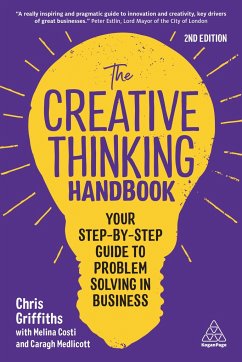
Creative Discipline, The
Mastering the Art and Science of Innovation
Versandkostenfrei!
Versandfertig in 1-2 Wochen
35,99 €
inkl. MwSt.

PAYBACK Punkte
18 °P sammeln!
Why are some organizations more creative than others? What sets innovative, high-performing organizations apart? Can creativity and innovation be learned and enhanced? The answer to the last question, say creativity experts Nancy Napier and Mikael Nilsson, is a resounding yes. And with general consensus that creativity and innovation drive business growth, fostering creativity couldn't be more important. In The Creative Discipline , Napier and Nilsson illustrate six key factors that power creative, high-achieving organizations, and they provide managers with guidelines for incorporating those ...
Why are some organizations more creative than others? What sets innovative, high-performing organizations apart? Can creativity and innovation be learned and enhanced? The answer to the last question, say creativity experts Nancy Napier and Mikael Nilsson, is a resounding yes. And with general consensus that creativity and innovation drive business growth, fostering creativity couldn't be more important. In The Creative Discipline , Napier and Nilsson illustrate six key factors that power creative, high-achieving organizations, and they provide managers with guidelines for incorporating those factors into their own companies. Business people will learn how innovative organizations get superior results from employees not just through disciplined methods of thinking, but also through free-flowing work spaces and work practices that help supercharge the imagination. Combining research on creative organizations in several sectors, this book argues that innovative organizations known for doing things differently (and profitably) approach creativity and innovation in similar, disciplined ways, regardless of industry or field. That discipline fosters new ideas, solutions, and approaches, and it ensures that the flow of creativity is constant. The Creative Discipline demonstrates that: -Innovative, high-performing organizations have three disciplines in common: (1) within discipline mastery, (2) out of discipline thinking, and (3) a disciplined process that leads to innovation. -Innovative organizations also have three factors that strengthen the creative disciplines: faces (creative entrepreneurs, leaders, and teams); places (the physical and organizational infrastructure that is reflected in offices, buildings, and location); and traces (elements that act as catalysts for creativity-the culture, networks, and policies that support creative and innovative endeavors). The book explains each factor for creative success in detail. Best, Napier and Nilsson show creativity and innovation at work in a range of sectors from sports to software to theater and contemporary circus. They also show how innovative practices in developed countries like the U.S. and Sweden compare to those in developing countries like Vietnam. Companies can learn to innovate and in the process reap benefits like higher sales and profits, greater productivity-while regaining a valuable element missing in so many workplaces: fun.














